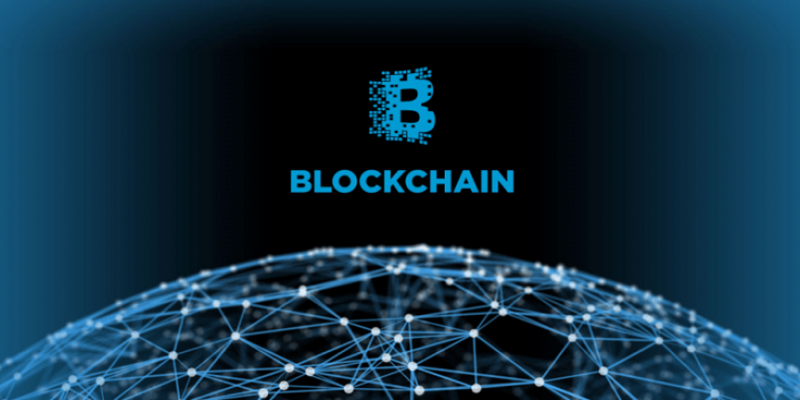The Bitcoin Player's Guide to DeFi
Decentralized finance (DeFi) is exploding. Centralized within the Ethereum ecosystem, it provides the types of services hitherto dominated by the traditional financial system, such as lending and saving. But like the ICO craze a few years ago, the growing frenzy surrounding it has attracted the attention of those with a deep understanding of distributed ledgers and strong opinions on monetary policy. Early Bitcoin investors may be skeptical of DeFi, while those in traditional finance may take"wait and see"The way to judge the staying power of DeFi.
DeFi is moving towards a parallel, decentralized financial system
Bitcoin was created in response to the global financial crisis of 2008, when it became clear that the financial system underpinning the world economy was self-serving, unstable and inefficient. Mistakes by central authorities cost trillions of dollars; in a real sense, that means lost jobs, homes, and savings for ordinary people. Bitcoin, on the premise of a sound monetary policy, includes a fixed money supply and an immutable commitment to fairness and transparency. It was designed to fill the void left by the incompetence of the global financial elite.
More than a decade later, BTC remains one of the only digital currencies to demonstrate real value and utility. But we all know this is not the end of the story, and many more applications, protocols, and digital assets will and must emerge in large numbers if the vision of a decentralized financial system is to become a reality. And in the current state of the decentralized economy, Ethereum is the only viable protocol that is making this happen. Today's applications built on top of Ethereum are getting more powerful and complex.
The biggest change in the crypto space right now — in terms of growth, of course — is the multitude of DeFi applications currently popping up on Ethereum. Over the past year, the DeFi space has grown by more than 1,000% -- over $10 billion in value locked. And it's getting mainstream media attention, with Bloomberg, Forbes, Entrepreneur magazine all reporting on the rapid growth recently.
As a bitcoiner, you might say:"Why should I care about this?"There are several reasons. At its simplest, it's always good to know what's going on across the field, even if we don't have a positive view of everything. In addition, DeFi is also valuable. It can be an important piece of the puzzle we need to realize our shared vision of a decentralized economy. Not only that, but there are more and more ways for Bitcoin holders to make money in DeFi.
With that in mind, here's what bitcoin investors should know about decentralized finance.
DeFi 101
DeFi refers to any application or product that provides financial services on the blockchain. In practice, almost all DeFi applications run on Ethereum. They provide services such as borrowing, lending, savings, derivatives, and insurance—all functions that exist in the traditional economy, but are opaque, inefficient, and controlled by powerful “gatekeepers” such as banks.
DeFi provides wider access and transparency by removing these powerful gatekeepers. The technology also brings benefits such as immutability and censorship resistance—while often placing greater demands on the responsibilities of each individual investor. Ultimately, DeFi promises to radically expand access to services like lending and provide ordinary people with far better returns than the sub-inflation rates banks pay or the negative rates now offered on many sovereign debts.
The question, of course, is whether DeFi can live up to this promise. Bitcoiners are used to sniffing at ethereum -- after all, it's been promising world-changing applications and products for years, and to many it's just rhetoric. To make matters worse, there is ample evidence that the ICO frenzy of a few years ago actually distracted people from the general focus on the advancement of blockchain technology. In the eyes of mainstream businesses, media, and the financial world, the speculators, opportunists, and scammers in the Ethereum community have cast a shadow over the entire ecological development-we are still in the process of recovering from this shadow .
Why is DeFi different?
All beings in the DeFi field
The growth of DeFi applications is different from previous bubbles, such as the ICO boom, because it provides real products with real use cases. Platforms like Maker and Compound let people earn income by putting their cryptocurrencies in various ways: they can deposit their cryptocurrencies and earn interest, they can take out loans, or they can make money based on this activity. Derivatives trading. These are the basic functions of the financial system, and the version of the blockchain must gradually develop steadily, with the decentralization of the blockchain and the native functions of the immutable underlying technology to realize its potential.
The innovation capability of blockchain technology also means that the DeFi platform has provided people with financial opportunities that cannot be realized in the traditional financial system. For example, Aave offers flash loans, which allow people to borrow money without collateral or credit. This does not exist in traditional finance---this is the innovation of DeFi.
Of course, not everything in DeFi is as promising as this. There are dross and essence in this field. Many opportunists are looking to take advantage of the current frenzy to make a quick profit. Projects like TARD make this clear, as do platforms like SushiSwap, BurgerSwap, and YAM Finance. It is the duty of any potential investor to conduct proper due diligence before participating in any DeFi platform. But the emphasis on personal choice and personal responsibility is in full compliance with Bitcoin's governance philosophy.
Bubbles aside, DeFi presents both a real opportunity to grow a decentralized economy and an opportunity to earn on digital assets. Honest bitcoiners will recognize that many DeFi applications are built on solid sovereign currency principles. Additionally, while most DeFi applications are built on Ethereum, transactions are not limited to a single chain. Projects like tBTC and WBTC, and even the Bitcoin sidechain RSK, allow people to invest and earn across chains—and with roughly two-thirds of all crypto wealth currently denominated in Bitcoin, this It will be very important to the overall development of the decentralized economy. Bitcoin is still king, and cross-chain innovation will bring opportunities for Bitcoin holders who like to earn yield on the native blockchain system, but prefer to fall back to sound BTC.
DeFi has a chance to do something important, and Bitcoin should play a big role
There’s a lot of good and bad in the rapidly expanding DeFi space, but fundamentally, many of the projects emerging in the space are part of a major step forward for the decentralized financial system. Bitcoin’s market capitalization is about $200 billion, which dwarfs the size of the DeFi market ($10 billion) and Ethereum’s market cap (currently $43 billion). For DeFi to succeed, Bitcoin must play an important role. The cross-chain function provided by the integration of BTC and ETH (such as sBTC, tBTC, wBTC and other projects) can help achieve this result, and there may be money to be made.



